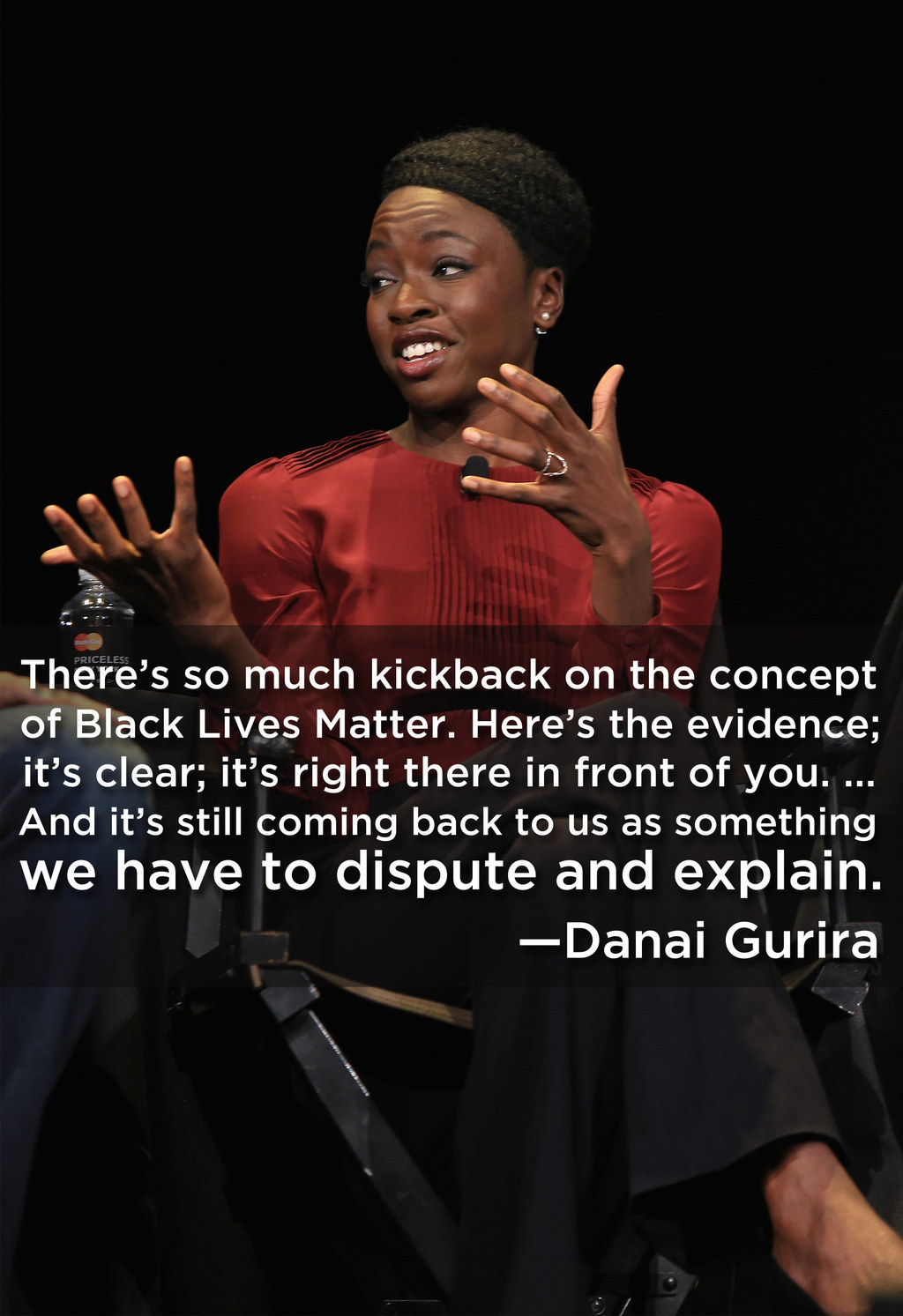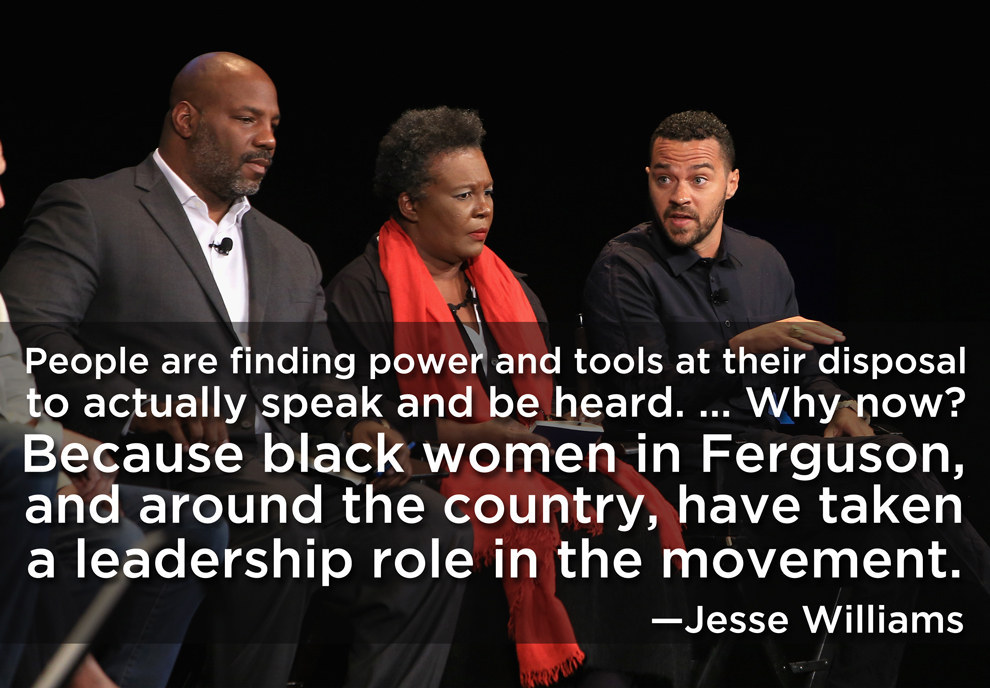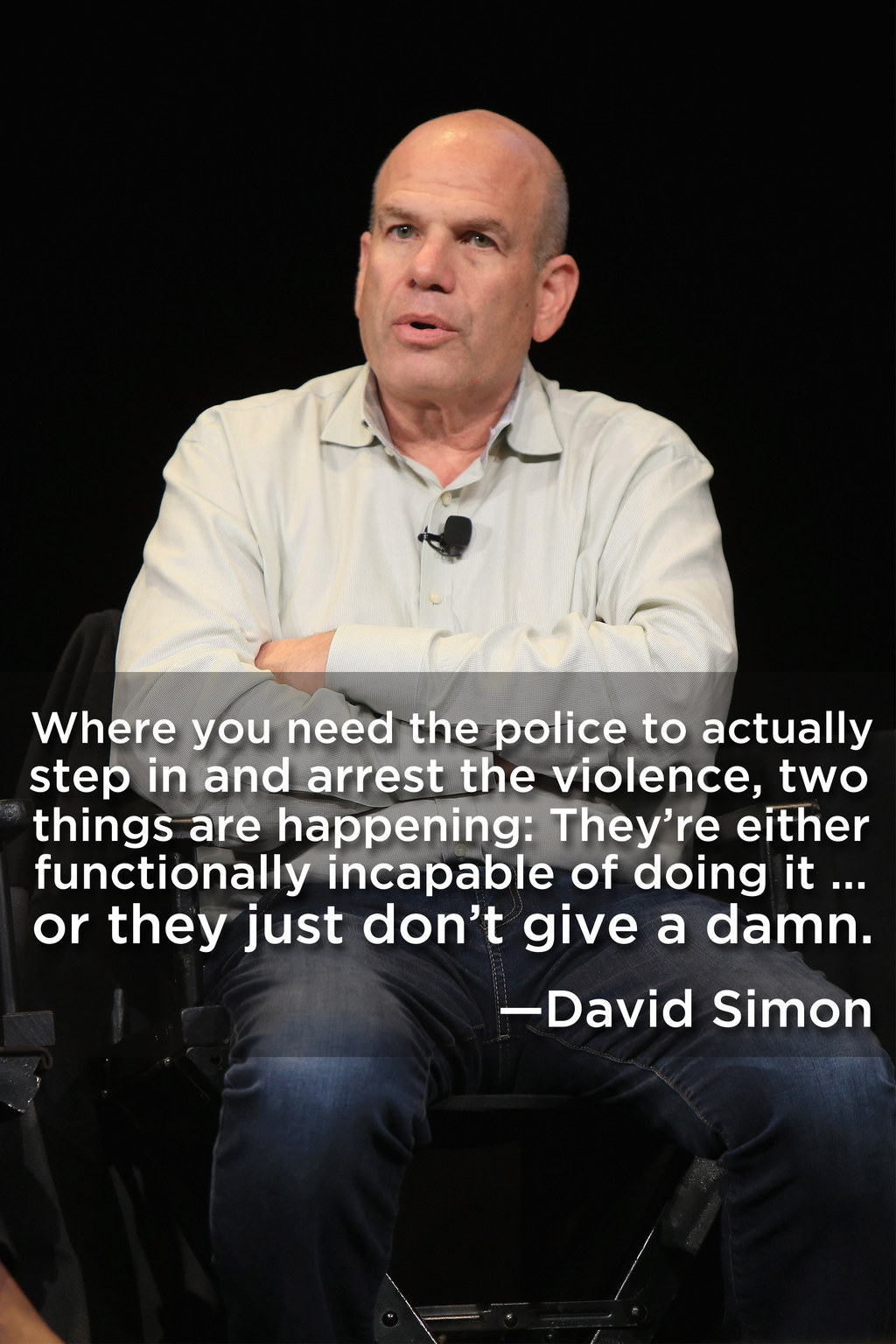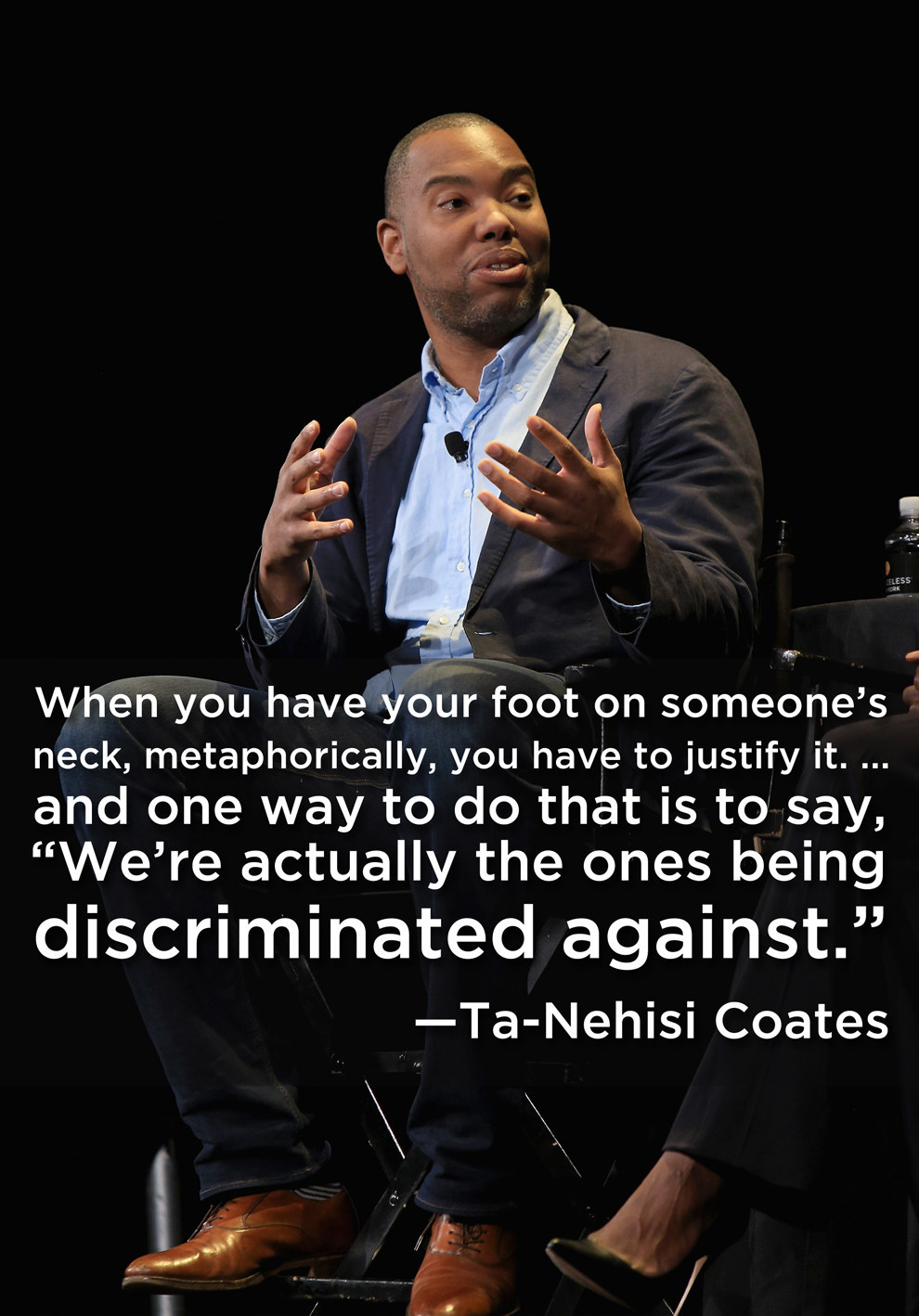
On Oct. 4, writer Jelani Cobb moderated "The Fire This Time: Black in the U.S.A." as part of this year's New Yorker Festival. Here are some of the most powerful quotes from the panel on systemic racism, police violence, and the changes that are coming.
1. There's so much kickback on [Black Lives Matter]. Here's the evidence; it's clear; it's right there in front of you. We're seeing this case after case after case, and yet, there's still kickback on the concept that we need to look at this specifically as something that's happening disproportionately to people who happen to be of African descent. And that's still coming back to us as something we have to dispute and explain. —Danai Gurira, actor (The Walking Dead), playwright (Eclipsed), and activist
2. I think a larger ideological war is happening, an ideological question of humanity. When you systematically dehumanize a people, over the course of centuries — through every single avenue that we have, through school, through media, through every single way we process information — we make certain people's value and life worth less. Then we are able to tolerate their life being treated with less value. —Jesse Williams, actor (Grey's Anatomy) and activist
3. One of the things we don't ever say explicitly is that whiteness is a brand, and that everything in the culture moves towards creating concepts of whiteness that control the white imagination... We're being shifted and trained, culturally and constantly. We think about it as blacks, or people of color, but white people are not used to thinking about it, because whiteness is equal to normality. So, for the first time I think we're in a place where we can begin to think about what structures whiteness. What presumptions does the white imagination move forward with? —Claudia Rankine, poet (Citizen: An American Lyric)

4. People are finding power and finding tools at their disposal to be able to actually speak and be heard, and find a community, and find fellowship. Why now? Because, in particular, black women in Ferguson and around the country have taken a leadership role in the movement. —Jesse Williams
5. The earlier forms [of media] are mediated through the white, liberal body. The slave narratives had a formula. ... But this is the first time that anyone in this room can walk out the door, see something, film it, post it, and notice the posts are actually driving what happens in mainstream media. —Claudia Rankine
6. We are seeing that these videos might not get the reaction on a national scale that some of us might have, [but] we are seeing a stripping down slowly of the blanket rightness of the man in uniform, the woman in uniform — the blanket rightness of whiteness. —Jesse Williams

7. The clearance rate of murder in my city, Baltimore, is 30%. Nationally it's 60%. I live in a majority black city. That's not by accident. If you go to Compton or Florence, the African-American communities in South Central L.A., 30–35% is the clearance rate. Half the national average. Where you need the police to actually step in and arrest the violence, two things are happening: They're either functionally incapable of doing it, which I would argue has to do with the fact that they basically alienated everybody from these communities. ... Or, they just don't give a damn. —David Simon, journalist, screenwriter, and producer (The Wire, Treme)
8. How decisive was the video [evidence] with John Crawford III? How decisive was it with Tamir Rice? How decisive was it with Eric Garner? I think people can see what they want to see. —Ta-Nehisi Coates, journalist and writer (Between the World and Me)
9. Curriculum is the answer [in the classroom], and pushing against a creation of whiteness as the overriding frame in which we all will bend to. There are ways of teaching texts that call into question different things. What gets left out, what is not mentioned — often the omissions are not pointed to. And that's where we can start to move in. —Claudia Rankine
10. My job [as a writer] is to attempt to alter the imagination, and then things come out of that. ... People will come up and say, how do I get my racist uncle, who I have to argue with at Thanksgiving, to read [Between the World and Me]? It's not for your racist uncle. It's not for him. This book is for you, that's the first thing. And then it's really for his grandkids. Books work in the long run, and the war is long. —Ta-Nehisi Coates

11. When you have your foot on someone's neck, metaphorically, you have to justify it. You have to somehow make yourself innocent. So one can go back to the onset of the Civil War, or even further than that — Thomas Jefferson, for instance, in that famous quote when he tried to explain what it was like to be in the South. ... "We have the wolf by the ear." "We're threatened! Not the wolf, not the slaves." When folks go to war — the South go against the North — the first thing they say is, "Unless we do this, they'll reduce us to slaves." This is the justification. You have to somehow show cause. You have to somehow prove that you're not just willing to go participate in the system out of malice, and one way to do that is to say, "We're actually the ones being discriminated against." —Ta-Nehisi Coates
12. What's interesting about [forgiveness] is the reaction. When we salute forgiveness in South Carolina, would anyone say, I forgive you, ISIS? Dylann Roof is not the only person trying to bait somebody into a war. Forgiveness is only our answer in certain places, and it's interesting to see where forgiveness ends. Where forgiveness is appropriate. —Ta-Nehisi Coates
13. The idea of grace or forgiveness is often not considered something for the other. It's for you. Because to walk around with that hate and that rage all the time can destroy you, and there's nothing that person can actually do to actually amend what the other did. There's no action they can take. ... I think there is something powerful for the person who [forgives], and I think there is something about it that is sort of divine. It's not easy to do; it's barely comprehensible. —Danai Gurira
14. Isn't there some middle ground between I hate you and I forgive you? Like I ain't thinking about you? —Ta-Nehisi Coates

15. I think we don't actually need to be anxious about individuals, and we do need a lot of anxiety when we think about the system. The question is, what is the system pointed towards, who does it hold, who does it let go? All of those questions, when we think about systemic racism, systemic violence, all of that needs to be addressed first, and then individuals are individuals. —Claudia Rankine
16. We are constantly talking about the symptoms, and never the sickness. —Jesse Williams
17. This is a very, very long war. We had slaves in this country much longer than we've had freedom, 250 years of that. What that means is, there were entire generations of black people in this country who could not see the end of slavery and couldn't look back and see the beginning. Their grandparents were slaves, grandkids are gonna be slaves. Should they then not have resisted? Or were they a part of something much, much larger? If the question is "How do we end this right now?" there are no answers for that. But there are long answers I think, about the kind of world that your great-great-grandchildren will live in. —Ta-Nehisi Coates

